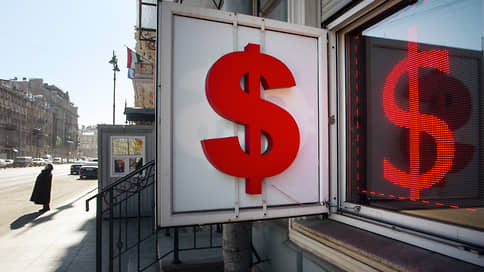Sanctions are paid in dollars – Newspaper Kommersant No. 42 (7487) dated 03/14/2023
[ad_1]

Expectations of the spread of sanctions by the United States, apparently, still weaken the position of the dollar as a reserve currency. This is the main conclusion of economists from the Fed and the University of Notre Dame, who are investigating this issue on model data. In any case, the expansion of sanctions is “not free” – it reduces welfare in the United States, and this effect outweighs the gains for the country from the “flight to the dollar.” The question of the “macro cost” of large sanctions has just begun to be discussed by economists: the 2022-2023 campaign started without any preliminary reliable estimates of the effects under discussion, the result will be discussed after the fact.
The preprint “International Sanctions and Dollar Dominance” was published yesterday in a series of publications of the NBER Association. The authors of the work are Cesar Sousa-Padilla from the American University of Notre Dame and Javier Bianchi, who works at the Federal Reserve Bank of Minneapolis (the latter acts as an academic researcher, and not a representative of the US emission system). The question investigated in the article can be formulated as follows: do issuers of international reserve currencies, in particular, the dollar, gain or lose as a result of the introduction of major international sanctions? In other words, are sanctions a costly undertaking from the Fed’s point of view, or, on the contrary, is the Fed making money off of it? A secondary but related question is the state of the subjects of the “dollar economy”, companies and households in the United States (as amended, the conclusions of Bianchi and Sousa-Padilla are applicable to any issuer of the world reserve currency and the jurisdiction in which it is issued): do they pay for the imposed sanctions Or do they benefit from their introduction?
The authors state a surprisingly small amount of scientific literature on this subject: these and related topics have been discussed since 2018, most authors explore the issue in the narrow context of the mutual influence of the dollar and the Chinese yuan as a contender for reserve currency status. In 2022, two works were published on a closer topic: Guido Lorenzoni and Ivan Warning discussed the consequences of sanctions for the ruble, Oleg Itskhoki and Dmitry Mukhin discussed the impact of sanctions regimes on exchange rates. Important to the discussion is a 2020 article by Pierre Gurinch, Helen Ray, and Nicholas Govillo on the Fed’s “prominent rights and responsibilities” as a dollar issuer.
Bianchi and Sousa-Padilla are trying for the first time to model the macro-effect of the worldwide expectation of expanding sanctions – the financial markets have long been discussing how the potential losses of the “dollar zone” from the sanctions reduction in the dollar’s turnover due to a decrease in confidence in the G7 reserve currencies in the rest of the world (in the article This implies, among other things, the spread of the “effect of distrust” to the dollar and the euro due to the freezing of international reserves of the Russian Federation to third countries and the gain in settlements for “non-reserve” currencies – this is the main argument of the Central Bank and the Ministry of Finance of the Russian Federation in criticizing the sanctions), and the “winning” of the Fed and the dollar zone from the opposite effect – the flight of global investors from risks (it increases capital inflows into the United States and dollar-denominated low-risk assets).
General conclusions: US sanctions and the expectation of their expansion ultimately play against the dollar as a reserve currency and reduce the overall welfare of both companies and households in the US, and holders of dollar assets. The sanctions campaign also increases real rates in the dollar zone. We are talking about qualitative and theoretical assessments, quantitatively this effect, apparently, is limited and secondary, in addition, from the logic of Bianchi and Sousa-Padilla it follows that for the issuer of the reserve currency, the “paid” sanctions affecting settlements in it are insurmountable: in to some extent, it will almost always be present.
The calculations of the authors, if they are not refuted, remove the question of whether the United States “makes money on sanctions”: what the G7 countries are losing on them is said not only by politicians, but also by economists – Bianchi and Sousa-Padilla confirm the conclusions of colleagues from other works. However, they stipulate that other channels for strengthening the dollar as a reserve currency may also be important: it is this mechanism (albeit the most popular in political speculations) that is being investigated, and there are others. The appearance of such works, we note, emphasizes the spontaneity of the 2022–2023 sanctions campaign and its purely political motivation. If politicians had long been ready for sanctions of this magnitude, it is unlikely that economists would undertake to study their effects only now.
[ad_2]
Source link






